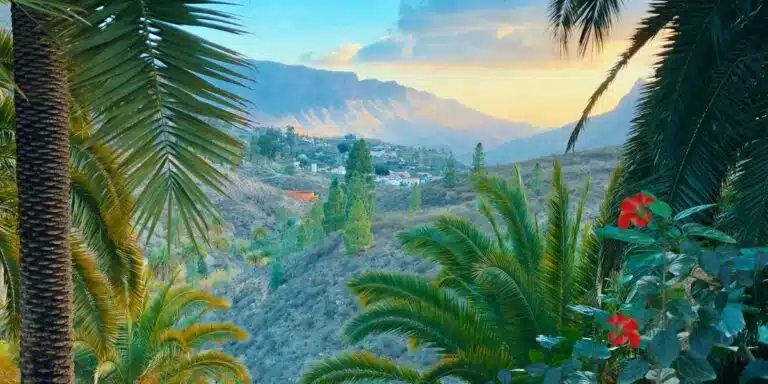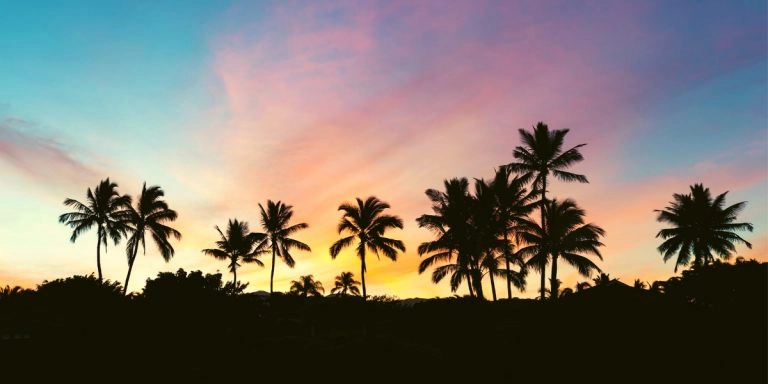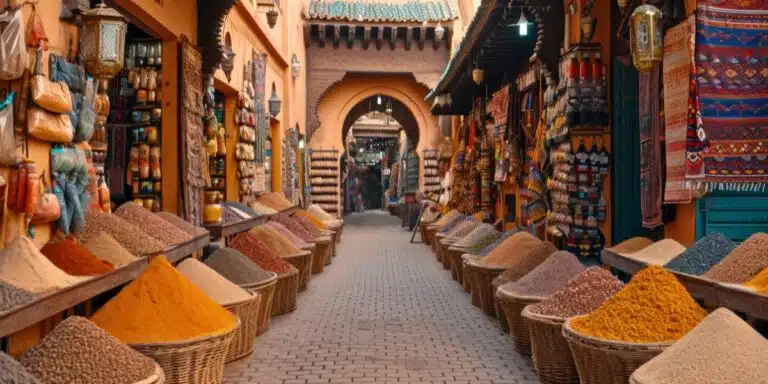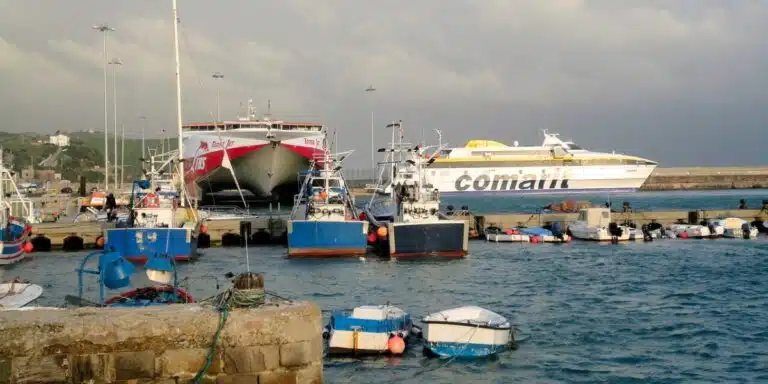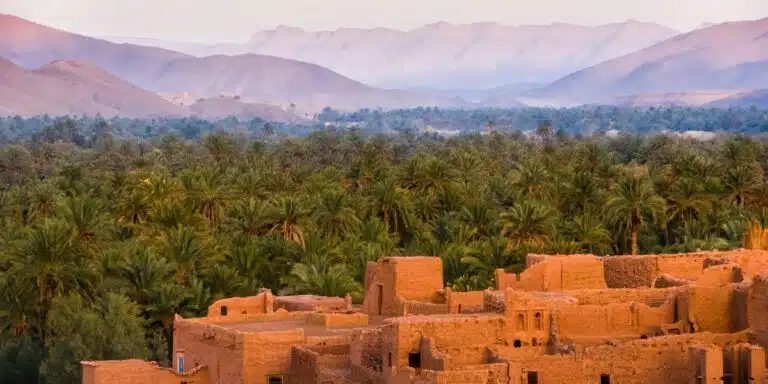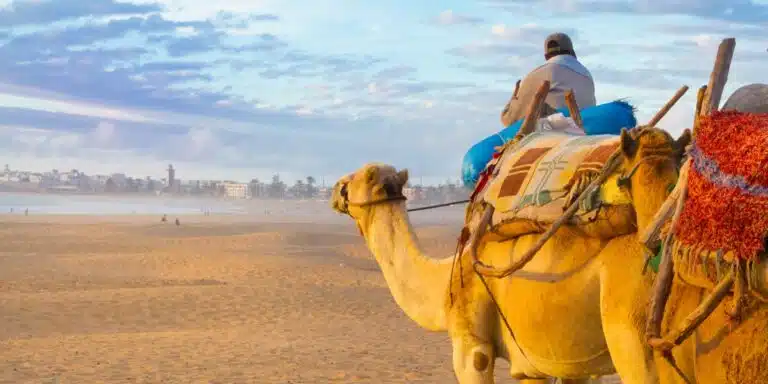This post may contain affiliate links, from which we earn an income. Click here to read our affiliate policy.
Rushing through Morocco might tick boxes on a travel checklist, but it rarely leaves much room for real memories. Between the ancient maze of Fes, the silence of the Sahara, and the palm groves of Taroudant, the idea of slow travel starts to feel not just like a choice, but a necessity. And once you’ve experienced Morocco at a different pace, it’s hard to go back.
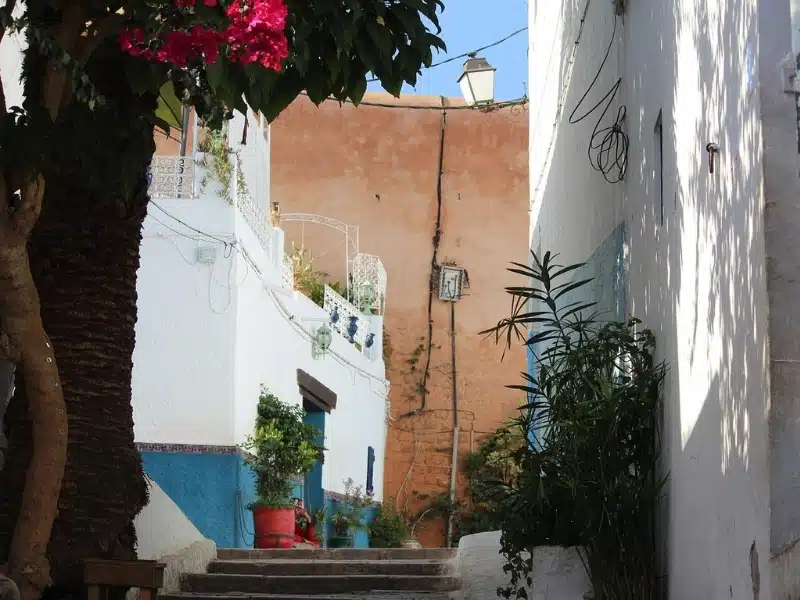
A journey through Morocco, without the stopwatch
British writer Juliet Kinsman set out to travel from Marrakech to London — without flying. Her story, told in Condé Nast Traveller, unfolds across trains, buses, and ferries, with long pauses in family-run riads and off-the-map corners. Each stop becomes a story in itself: breakfast with a local family in Fes, a henna night in the Medina, a flamenco class in Seville. She even shares a sunset from Chefchaouen’s blue rooftops with a guide named Chama, the first woman from her Berber village to become a professional tour guide.
Instead of dashing between cities, Juliet let the country shape the rhythm of her days. There were no tight schedules, no endless repacking. Her Morocco wasn’t about seeing everything — it was about feeling everything.
For travellers craving that kind of connection, Voyage Privé offers unique Moroccan experiences — from peaceful riads to desert retreats.
Morocco doesn’t fit in a week
According to Jeff Wilson, a specialist in private Moroccan tours, most travellers try to see too much in too little time. They land with long lists and a race against the clock. The result? Long car journeys, short nights, meals eaten in a rush, and very little left of Morocco besides a phone full of photos.
The country is as large as California and just as varied. You’ve got ancient imperial cities like Marrakech, Fes, and Rabat, remote Berber villages in the High Atlas, and the vast Sahara, which takes a full day’s drive to reach from the north. Then there’s the coast, dotted with breezy fishing towns and lively ports.
If you try to cram it all into a few days, most of what you’ll see is the inside of a van.
Jeff’s advice? At least two weeks, if not more. And if you’re short on time, choose one region. Slow travel isn’t about skipping Morocco’s icons — it’s about giving them space to sink in. It’s the difference between photographing the most photogenic destinations like Fes’s tanneries and actually getting lost in its 9,000 alleyways, between watching the Sahara from a viewpoint and sleeping under its stars.
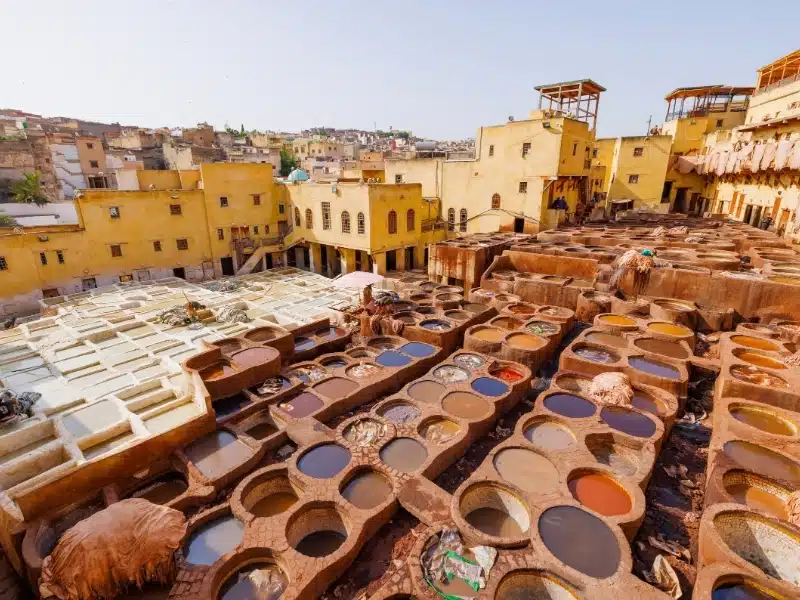
In Taroudant, silence is the destination
Further south, near the foothills of the Atlas, the town of Taroudant offers a completely different Morocco. Away from the tourist trails, the Riad Elaissi doesn’t promise luxury in the usual sense — no infinity pools or rooftop bars here. What it offers instead is silence. And that’s exactly the point.
In a world filled with buzzing phones and crowded trains, silence has become rare. Riad Elaissi is wrapped in 20 hectares of nature, where the only sounds are birds in the morning and the breeze through orange trees. Days are slow by design — reading under fig trees, cooking from the garden, taking morning walks under the palms.
This is where the rhythm resets. You sleep when you’re tired, eat when you’re hungry, and breathe like you forgot you could.
The owners don’t talk about five-star service; they talk about real moments: peeling oranges from the garden, watching shadows move across old stone, feeling time stretch out like a lazy afternoon. In a place like this, doing nothing feels like an activity.
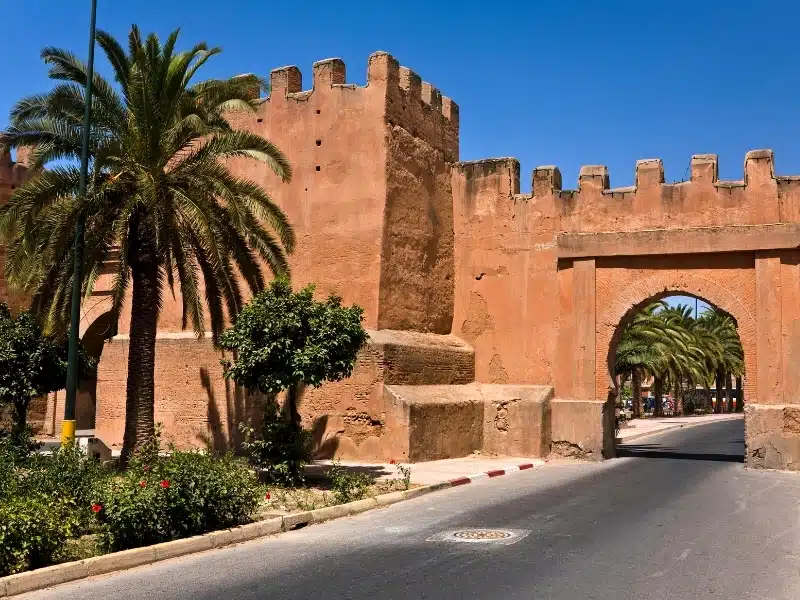
A different kind of memory
Whether you’re travelling with a guide like Juliet, planning your own itinerary, or simply staying put in a peaceful riad, one thing becomes clear: Morocco rewards the slow traveller.
It’s not just the landscapes or the food. It’s the way strangers stop to offer mint tea. The quiet conversations with an artisan in a Fes alley. The long dinners that turn into storytelling. These aren’t things you can rush. They take time and attention — and they’re the ones you’ll remember years later.
Sometimes, the most meaningful parts of a trip happen when you’re not doing much at all. And in Morocco, that’s not just okay — it’s the whole point.

